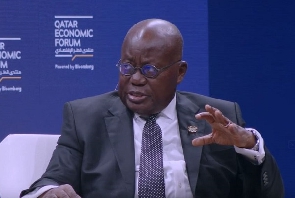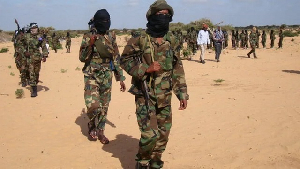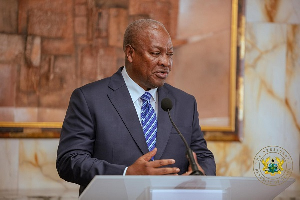There is an impending power crisis, as the Chamber of Independent Power Producers (IPPs) has directed its members to cut supply to the national grid from July 1, as a result of an outstanding debt of approximately US$1.73 billion.
This is in spite of President Nana Akufo-Addo’s promise to “keep the lights on” despite the country’s economic challenges.
Sunon Asogli, Cenpower, Karpowership, AKSA, Twin City Energy and CENIT make up the Chamber. The debt dates back to January 2021.
Interestingly, the Public Utilities Regulatory Commission (PURC) has been using such debt to justify various increments with the latest being an 18.36 percent increase in tariffs for both electricity and natural gas across all consumer groups.
The decision came after a comprehensive review conducted for the second quarter of 2023 and the new rate took effect from June 1, 2023, but is it obvious the IPPs are not being paid what is being charged consumers.
The directive to put out their available power capacity to the system operator will last till July 8. This implies that the impending crisis is not about generation capacity, but the hefty debt owed by the country.
The Chamber in an email directing its members and sighted by Citi News said, “Further to our planned industrial action on July 1, 2023, we would like each IPP to nominate nothing (zero nominations) and not declare an availability to the System Operator, beginning July 1 to July 8, 2023”.
With just a day to the expiration of the deadline given by the Independent Power Producers to shut down over outstanding arrears, the group is yet to meet the government for a favourable response prompting this latest order.
The two parties were expected to meet this week for an agreement on demands for a 30 percent interim payment of the arrears.
The IPPs argue that without receiving payment by the close of June 30, they will be unable to sustain the national grid.
“We are determined to get results at all cost,” the mail concluded.
Independent power producers play a significant role in Ghana’s energy sector, controlling 47 percent of the country’s total power generation mix and contributing 67 percent of Ghana’s thermal power.
As of May 2021, the six enterprises collectively claim an outstanding debt of approximately $1.73 billion in cedis, with the debt dating back to January 2021.
The IPPs highlight that this debt has hindered their access to working capital, preventing them from financing crucial inputs such as chemicals for water treatment in thermal generators and other supplies, many of which are priced in foreign currency, primarily the US dollar.
Elikplim Kwabla Apetorgbor, the Chief Executive Officer of the Chamber of Independent Power Producers, Distributors, and Bulk Consumers (CIPDiB), expressed their inability to convince creditors, contractors, and other essential stakeholders to further delay payments and maintain operations.
“Basically, we are saying that we lack the resources to continue generation beyond 30th June, and we are giving them [Finance Ministry] up to March. We didn’t hear from them, but the fact is beyond June we just don’t have the resource to continue to supply.”
The IPPs have also rejected any form of debt restructuring because they cannot explain to their lenders that Ghana’s economy is in shambles and are unable to repay their debt.
Watch the latest edition of BizTech below:
Business News of Friday, 30 June 2023
Source: theheraldghana.com



![Social activist, Ralph [L] and MP for Nhyiaeso, Dr. Stephen Amoah Social activist, Ralph [L] and MP for Nhyiaeso, Dr. Stephen Amoah](https://cdn.ghanaweb.com/imagelib/pics/385/38528813.295.jpg)









